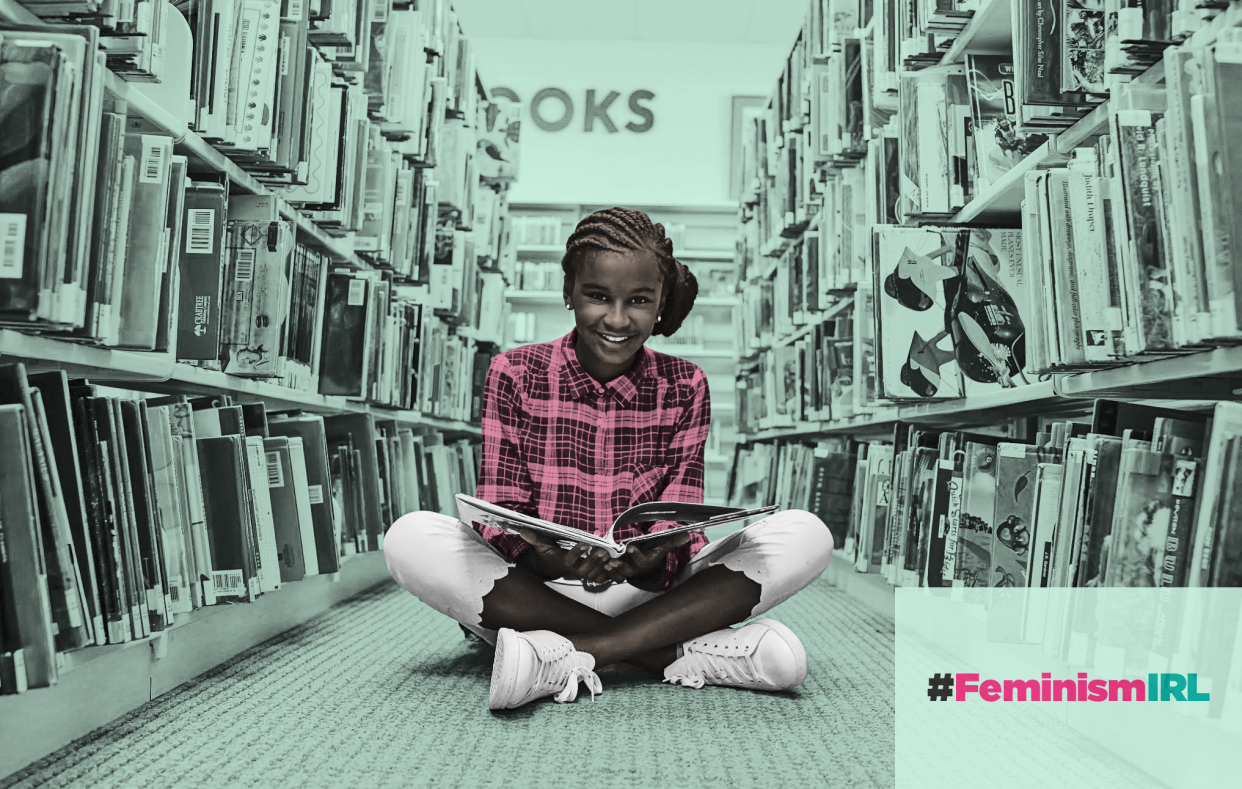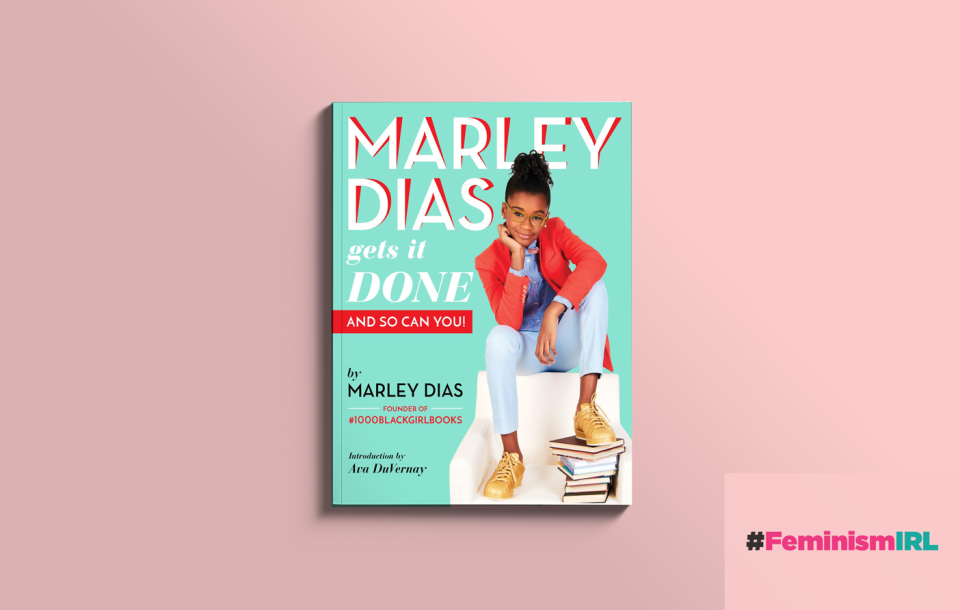Girls, teens are left out of #MeToo, says 13-year-old activist

To mark the International Day of the Woman on March 8 and Women’s History Month, Yahoo Lifestyle is exploring notions of feminism and the women’s movement through a diverse series of profiles — from transgender activist Ashlee Marie Preston to conservative campus leader Karin Agness Lips — that aim to reach across many aisles.
Turn on the TV or pick up a newspaper, and you’ll see thousands of children on the frontlines of today’s movements against gun violence or in support of education reform and health care equality. But children were actually on the frontlines of activism long before students across the U.S. united for the national school walkout or took to Twitter to express their frustration after the Parkland high school shooting, and young black girls and boys have literally risked their lives to advocate for civil liberties.
It seems as though the brave youths in Ferguson, Mo., who sparked the Black Lives Matter movement have been overshadowed. Their tireless courage is a large reason why the tragic deaths of individuals such as Michael Brown, Trayvon Martin, and Sandra Bland will never be forgotten. Rewind to 1960, when a then-6-year-old Ruby Bridges endured name-calling and spitting when she integrated an all-white elementary school in New Orleans. And some people don’t even know the name Claudette Colvin. Just nine months before Rosa Parks refused to give up her bus seat to a white passenger, 15-year-old Colvin was handcuffed and arrested for doing the exact same thing in Montgomery, Ala.
But there is one name we should all get familiar with right now: Marley Dias.

“Striving for equity in the stories assigned to children in schools,” Dias launched the #1000BlackGirlBooks campaign at the age of 10. She has since collected more than 11,000 books that feature black female protagonists, became the youngest person to land on Forbes’ 2018 “30 Under 30” list, and written a book, Marley Gets It Done.
Accolades and achievements aside, Dias is a feminist force, and her voice can’t be silenced. “Like feminism, I want to create systems and structures for the equity for all people, especially girls and women,” she tells Yahoo Lifestyle.
The work she’s done on a grassroots level has made a profound impact on dismantling racism in education and empowering young black girls to see themselves as leaders. This is largely why the 13-year-old activist says the women’s movement “needs to refocus its attention on talking to people my age and younger.”
She explains: “We have all of these movements and they filter their ideas to the public, but I do not think they are actively thinking about the next generation. I believe that feminism needs to teach more girls about how to make institutional changes and how to further engage men and boys into being our allies.”
The #MeToo and @TimesUp movements are two that Dias particularly believes girls and teenagers are “still being left out [of].” She says, “I don’t see my generation at the forefront, the way older women are. I don’t see where they are making a place for us to continue, refine, and expand the work they have started. Young girls like me may not understand all the issues, but we are the ones who will be left to deal with anything they have not dealt with; we must be taken seriously.”
Yet she remains confident that their ideas “may offer unique and innovative solutions to some of the problems feminists have been fighting for.” Looking up to women who have diligently fought for women’s equality, such as Gloria Steinem, also make Dias think she “can do so much more.”
You’d imagine Dias would slow down, especially after just releasing a new book that she hopes “children and adults use it as a guide and begin to make real differences in their communities.” But this formidable teen reveals that the next step in her journey is policy.
“I feel like I am going to have to talk to more legislators, and that’s kind of nerve-wracking but very exciting,” she says. “I would also like to have more opportunity to talk to school administrators and directors of educational programs. I think it is important that they provide more opportunities to see, listen to, and support kids.”
Even though stepping into deeper political waters brings with it more bigotry, hate, and injustice — which Dias admits she’s “easily frustrated” by — she is unwilling to tolerate ignorance.
“I am unapologetic about the need for social change, greater inclusion, and equity,” she says. “I think it is important to speak your mind. Tolerance of the ignorance sends the wrong message to kids.”
Read more from Yahoo Lifestyle:
Meet the transgender activist who called Caitlyn Jenner a ‘fraud’
Why ‘Museum Mammy’ believes the feminist movement ‘will never be perfect’
Follow us on Instagram, Facebook, and Twitter for nonstop inspiration delivered fresh to your feed, every day.
